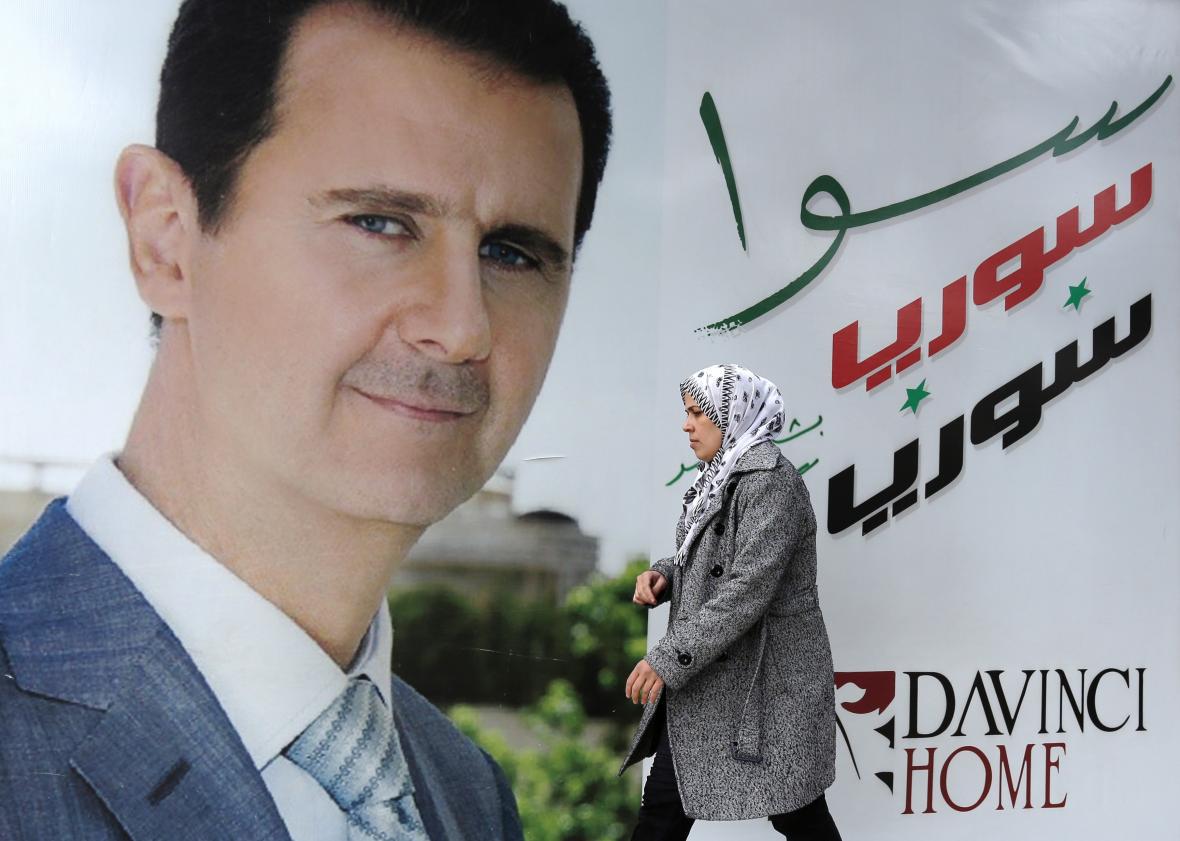Syrian President Bashar al-Assad has played a weak hand so well for so long that it seems foolhardy to bet against him. Even as he’s lost control over a significant portion of his territory and presided over the worst humanitarian crisis of the 21st century, he’s kept his core supporters in line and remains in office years after most Mideast watchers thought he only had months left in power. He called Barack Obama’s bluff by using chemical weapons and managed to avoid intervention by giving them up. By either directly or tacitly fostering the rise of ISIS, he’s taken international attention off his own violence to the point that the U.S. seemed on the verge, just a few months ago, of admitting he would stay in power. All the while, he’s continued to terrorize the people of Syria with barrel bombs and chemical weapons.
But for the first time in a long time, recent developments seem not so great for Assad. This week rebel groups are pushing into the Sahl al-Ghab plain in northwest Syria, an area that, as Reuters puts it, is “crucial to the defense of the coastal mountains that are the heartland of Assad’s Alawite sect.” This follows fighting in May in which government forces lost most of northwestern Idlib province to fighters from the al-Qaida-linked Jabhat al-Nusra. Assad admitted Sunday that his military is short on manpower and will have to pull back from some strategically important areas.
It’s also bad news for Assad that Turkey and the United States now seem to be on the same page when it comes to Syria. While the U.S. has been primarily focused on ISIS in Iraq, with the training of anti-Assad rebels in Syria relegated to the backburner, Turkish Prime Minister Recep Tayyip Erdogan’s government has remained committed to Assad’s ouster. The agreement between the two governments reached last week is primarily focused on ISIS, but it also includes a plan to create a 60-mile-long “safe zone” across the Turkey-Syria border for “relatively moderate” rebels—meaning those who are not affiliated with ISIS and at least not openly affiliated with al-Qaida—and displaced Syrian civilians. This comes very close to the “no-fly zone” Turkey has advocated for years, though the U.S. is reluctant to call it that. Whatever it’s called, it’s bad news for the Syrian military—the only fighting force in the country with an air force.
The Wall Street Journal also suggested yesterday that officials in Russia—the Syrian government’s primary international backer, along with Iran—are losing patience with their client in Damascus and are “showing more openness to discussing alternatives to Mr. Assad as his regime loses territory.” There’s been speculation about this before and it may be wishful thinking by Syrian opposition leaders, who are the article’s primary sources. (A Russian announcement this week that it is considering resuming oil and gas projects with Syria isn’t a hopeful sign.) But there are some intriguing details in the article, including the fact that Russian officials have been meeting with Syrian opposition groups in Turkey for the first time. The Journal also mentions a recent meeting between Russian President Vladimir Putin and Syria’s foreign minister in which the Russian leader pointed out Assad’s military setbacks and suggested that the Syrian regime join forces with regional rivals Turkey and Saudi Arabia. Such an alliance would be hard to imagine with Assad still in power. The well-connected Russian foreign policy analyst Fyodor Lukyanov suggests that the Kremlin is “looking at the acceptability of other candidates at this point.”
An even bigger question mark is Syria’s other main backer, Iran. Proponents of the recent nuclear deal suggest it could open up room for further negotiations between Iran and the West on regional issues, including Syria. Critics argue that the lifting of sanctions will give Tehran a cash windfall it could use to increase its support for Assad. The truth is neither side really knows how the deal will impact other, far more complex conflicts.
Assad’s departure won’t end the violence in Syria, or Iraq for that matter. ISIS without Assad will still be a factor for years to come if not longer and the complex constellation of rebel groups fighting Assad, including some linked to al-Qaida, aren’t just going to lay down their arms once he’s gone. But given the local carnage and global strife his rule has created, his departure from the scene would be a very welcome development, and there’s more hope for it right now than there’s been in years.
